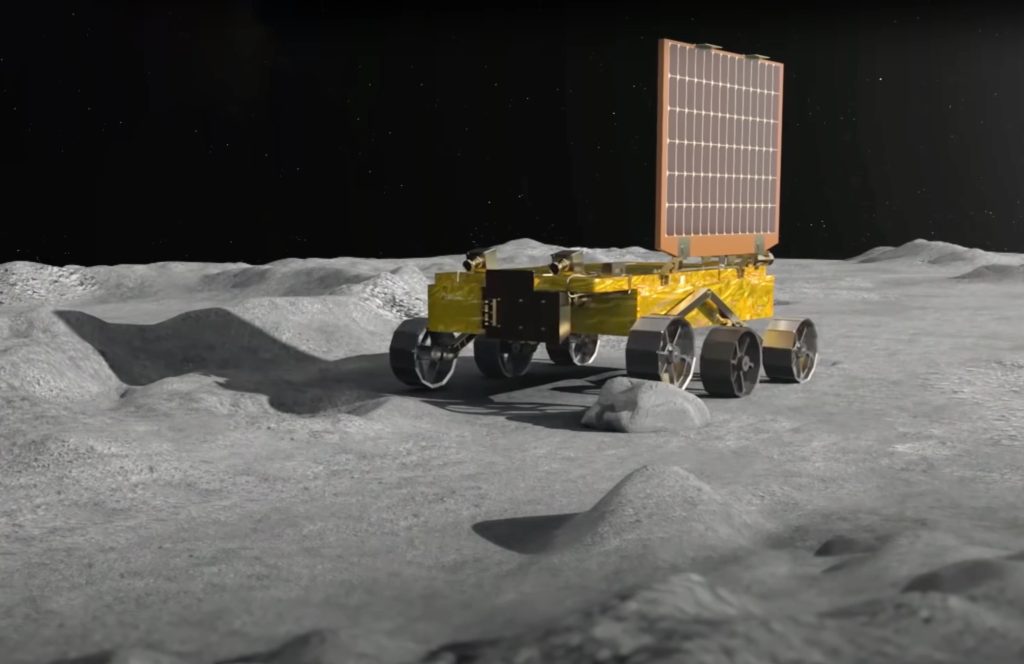The highly successful Chandrayaan-3 mission is proving to be a catapult for India’s space strategy, rather demure until now, and its ambition to undertake complex missions irrespective of technological and financial challenges. Becoming the first nation to land on the Moon’s south pole has given India the confidence to carry out more ambitious missions, and consolidating its global perception as a major lunar exploration country to partner with.
The success of Chandrayaan-3 comes at a juncture when space ventures are conducted not just to gain prestige internationally but also for military and commercial exploitation in the pursuit of achieving an advantage over their geopolitical rivals on Earth. However, until only ten years ago, the Indian space programme has focused only on accentuating India’s socio-economic developments.
While India always had the ability to use space prowess to change its strategic equations, it underutilised its space capacities and kept it limited only for regional confidence building. Chandrayaan-3 had the potential to alter the discourse within larger multilateral institutions, and its success has made Prime Minister Narendra Modi realise that. Among the BRICS nations, India is the only country after Russia and China to touch the Moon and the first to land near the South Pole. Prime Minister Modi’s proposal to form a BRICS Space Exploration Consortium is another compelling initiative forging global partnerships, especially in an era of the US-led Artemis Accords and the China-Russia limited International Lunar Research Station (ILRS).
PM Modi’s BRICS proposal has immense diplomatic consequences and indirectly invites China to peacefully work with India in outer space, keeping its animosity towards India aside. Moreover, the BRICS Plus will provide the necessary heft to the consortium. Saudi Arabia and the UAE can monetarily enrich the consortium, whereas other countries including Argentina and Iran can contribute through technical expertise and human resources. The Prime Minister’s proposal also holds prospects for mending ties between Iran, Saudi Arabia, and the UAE through space diplomacy and bringing stability to the region.
The US-China space race runs the risk of becoming an acrimonious rivalry, dangerous to the world. The rivalry will only harm the world’s interests in outer space. After the success of Chandrayaan-3, India now has a coveted place among the Artemis Accords signatories, given its immense potential to contribute to the goals of the Accords – technically and through an enormous space talent pool. Just like the US, India is also an indispensable partner to Russia. The ILRS can expedite only with possible cooperation from other space-faring nations. In order to bring non-space-capable countries like Venezuela or Pakistan into ILRS and strategically avoid space-capable nations, China would not benefit the ILRS at all, instead isolating the grouping. Further, Pakistan’s willingness to join the ILRS will become more motivated, given its hostile equation with India.
Chandrayaan-3 is more than just engineering success. Its scientific experiments have unveiled the temperature profile of the lunar south pole’s surface, the presence of sulphur and other elements, and the moonquakes. With these novel findings, India has proven its ability to explore the native attributes of the Moon, which are vital for setting human habitats on the Moon, extracting lunar resources, and making sure that the entire enterprise has a high return on investments.
The current international and geopolitical contingencies and strong national will have made India shed off its romantic idealism and realist space partnerships. International cooperation in space and investment in space technologies would enhance its national development goals and contribute to common global causes and aspirations. The Indian space sector is instrumental in the domestic governance of the country. Through its planning, monitoring, and execution of projects, the Indian space sector has facilitated ease of living. Additionally, space sector skilling and education will help in governance, lessons India can share with friendly countries.
Although India needs to augment its technological capacities, it is praiseworthy to highlight what it has achieved through smart innovations in all three missions to the Moon. Luna 25’s failed attempt to conduct the same mission has further given India the benefit of the doubt for cooperation in future space explorations. A lucrative market for private players and with ISRO as its ambassador, the country’s space economy is estimated to touch $40 billion by 2040. The space startup ecosystem is staggering, with around 400 private companies being created in clusters around Bengaluru, Hyderabad, Pune and other quarters, supplying materials to ISRO. Moreover, introducing the Indian Space Policy 2023 will play a decisive role in leveraging the space industry in India and culling out the required funds, research, and innovation in this sector. These factors only make India a desired partner of any space exploration consortium.
Ms. Prachi Shree is an alumnus of the Department of Geopolitics and International Relations, Manipal Academy of Higher Studies. Her research interest revolves around the role of science and technology in India’s national security, tech diplomacy, and public policy.





